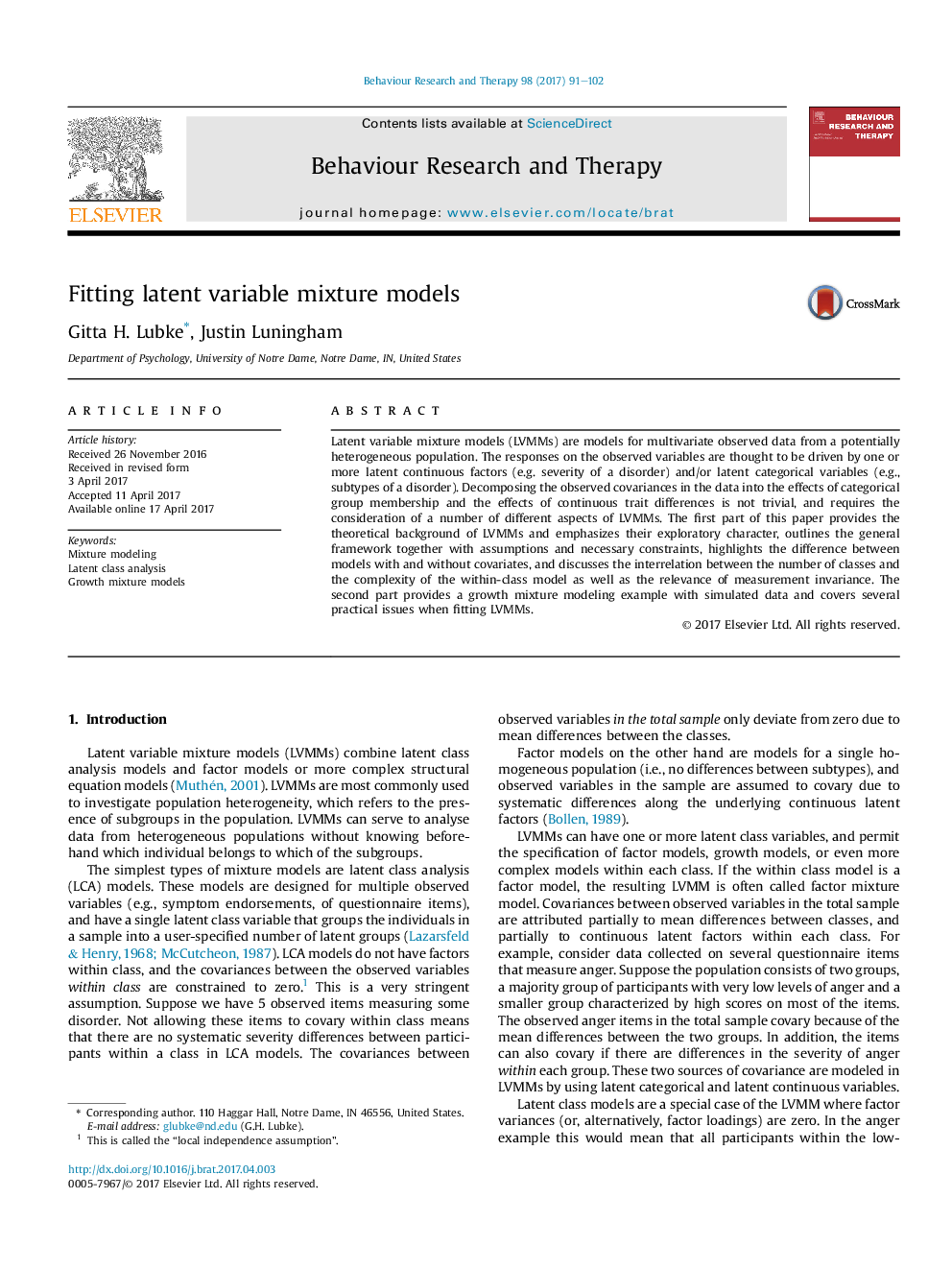| کد مقاله | کد نشریه | سال انتشار | مقاله انگلیسی | نسخه تمام متن |
|---|---|---|---|---|
| 5038144 | 1472751 | 2017 | 12 صفحه PDF | دانلود رایگان |
- Latent variable mixture models (LVMMs) are models for multivariate observed data from a potentially heterogeneous population.
- The observed responses are thought to be driven by one or more latent continuous factors and/or latent categorical variables.
- The first part of this paper provides the theoretical background of LVMMs, emphasizing their exploratory character.
- The second part provides a growth mixture modeling example with simulated data and covers practical issues when fitting LVMMs.
Latent variable mixture models (LVMMs) are models for multivariate observed data from a potentially heterogeneous population. The responses on the observed variables are thought to be driven by one or more latent continuous factors (e.g. severity of a disorder) and/or latent categorical variables (e.g., subtypes of a disorder). Decomposing the observed covariances in the data into the effects of categorical group membership and the effects of continuous trait differences is not trivial, and requires the consideration of a number of different aspects of LVMMs. The first part of this paper provides the theoretical background of LVMMs and emphasizes their exploratory character, outlines the general framework together with assumptions and necessary constraints, highlights the difference between models with and without covariates, and discusses the interrelation between the number of classes and the complexity of the within-class model as well as the relevance of measurement invariance. The second part provides a growth mixture modeling example with simulated data and covers several practical issues when fitting LVMMs.
Journal: Behaviour Research and Therapy - Volume 98, November 2017, Pages 91-102
